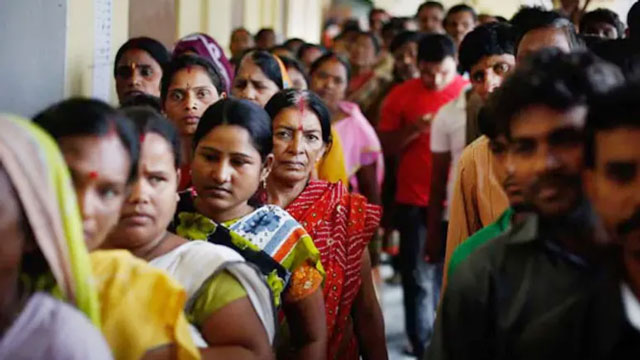Daijiworld Media Network – Patna
Patna, Oct 3: The Election Commission of India (ECI) on Friday released the final electoral roll for Bihar following the Special Intensive Revision (SIR) exercise, revealing a significant decline in voters ahead of the state polls. The total electorate fell by around 38 lakh, from 7.8 crore on January 1, 2025, to 7.4 crore in the final rolls.
The decline among women voters was particularly pronounced. Male voters decreased by 3.8 per cent (15.5 lakh), while female voters saw a sharper drop of 6.1 per cent (22.7 lakh). Political analysts note that this gender gap could have important consequences, as women voters play a key role in the strategies of both major alliances in Bihar.

District-wise trends
Gopalganj recorded the highest reduction in women voters, with a 15.1 per cent decline (1.5 lakh), followed by Madhubani (1.3 lakh) and Purvi Champaran (1.1 lakh, 6.7%). Saran and Bhagalpur each lost around 1 lakh women voters. Notably, all five districts share borders with either a neighbouring state or Nepal – Gopalganj and Saran with Uttar Pradesh, Madhubani and Purvi Champaran with Nepal, and Bhagalpur with Jharkhand.
Male voter deletions were also substantial, though lower than women. Madhubani led with 95,000 male voters removed, followed by Patna (90,000), Saran (86,000), Purvi Champaran (85,000), and Gopalganj (80,000).
Electoral significance
The highest voter deletions occurred across six key districts – Gopalganj, Madhubani, Purvi Champaran, Saran, Bhagalpur, and Patna – which collectively hold 59 assembly seats. In the 2020 Bihar assembly elections, the Mahagathbandhan (MGB) secured 25 of these seats while the NDA won 34.
According to a post-poll survey by the Centre for the Study of Developing Societies (CSDS), the voting patterns of men and women in 2020 were similar, with 38% of women and 36% of men backing the NDA, while 37% of women and 38% of men voted for the MGB. The NDA had a narrow lead of just 11,150 votes in these constituencies.
Given this tight margin, the large-scale deletions, particularly among women voters, could prove pivotal in shaping the outcome of the upcoming Bihar elections.